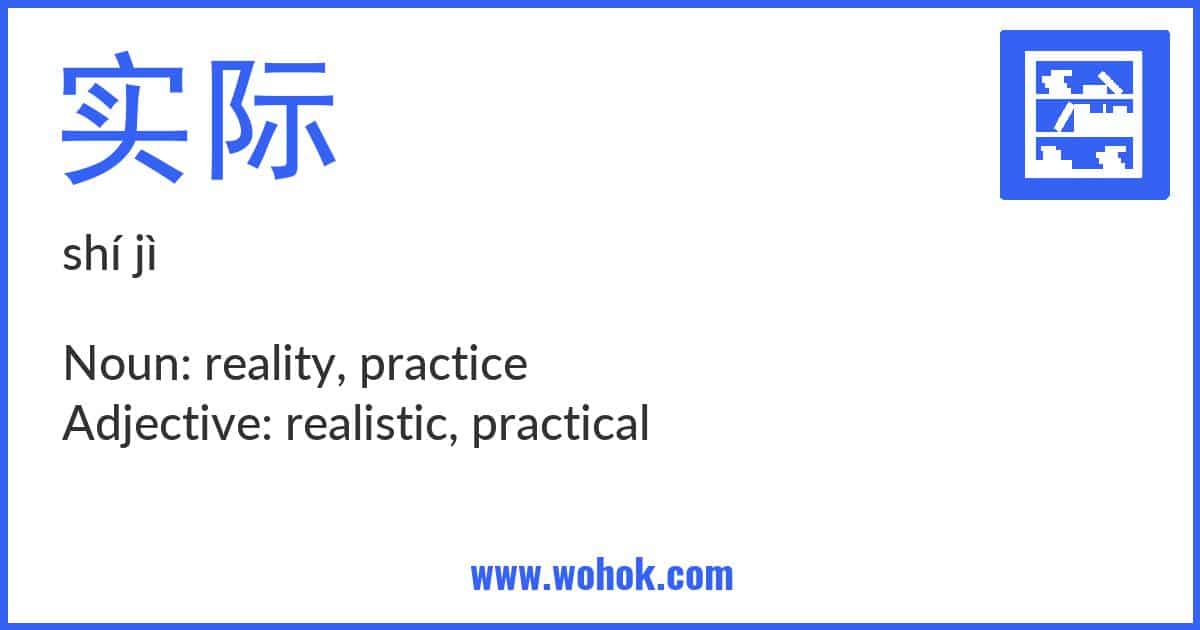The Chinese word 实际 means “actual” or “realistic”. It is often used to describe something that is practical, tangible, or based on facts and evidence. For example, you might use 实际 to describe a real-life situation or a practical solution to a problem. The word can also be used in the context of business or finance to describe actual profits or losses, as opposed to projections or estimates. Overall, 实际 is a versatile word that can be used in a variety of contexts to describe something that is concrete, factual, or practical.
Translation
Noun: reality, practice
Adjective: realistic, practical
Pronunciation
Example Sentences
| Chinese | Pinyin | Engish |
|---|---|---|
| 这个计划看起来不错,但实际上行不通 | zhège jìhuà kàn qǐlái bùcuò, dàn shíjì shàng xíng bùtōng | This plan looks good, but in reality it’s not feasible |
| 他的理论很有道理,但在实际应用中并不适用 | tā de lǐlùn hěn yǒu dàolǐ, dàn zài shíjì yìngyòng zhōng bìng bù shìyòng | His theory is very reasonable, but it doesn’t apply in practical use |
| 我们需要更多的实际经验来解决这个问题 | wǒmen xūyào gèng duō de shíjì jīngyàn lái jiějué zhège wèntí | We need more practical experience to solve this problem |
| 他的表现很出色,实际上他是一个很有天赋的音乐家 | tā de biǎoxiàn hěn chūshuò, shíjì shàng tā shì yīgè hěn yǒu tiānfù de yīnyuèjiā | His performance is excellent, in fact he is a very talented musician |
| 这个项目的实际成本比预算高得多 | zhège xiàngmù de shíjì chéngběn bǐ yùsuàn gāo dé duō | The actual cost of this project is much higher than the budget |
HSK
实际 is part of HSK Level 4 in HSK 2.0. In the newer HSK 3.0 it is part of HSK Level 2.
Learning Card


